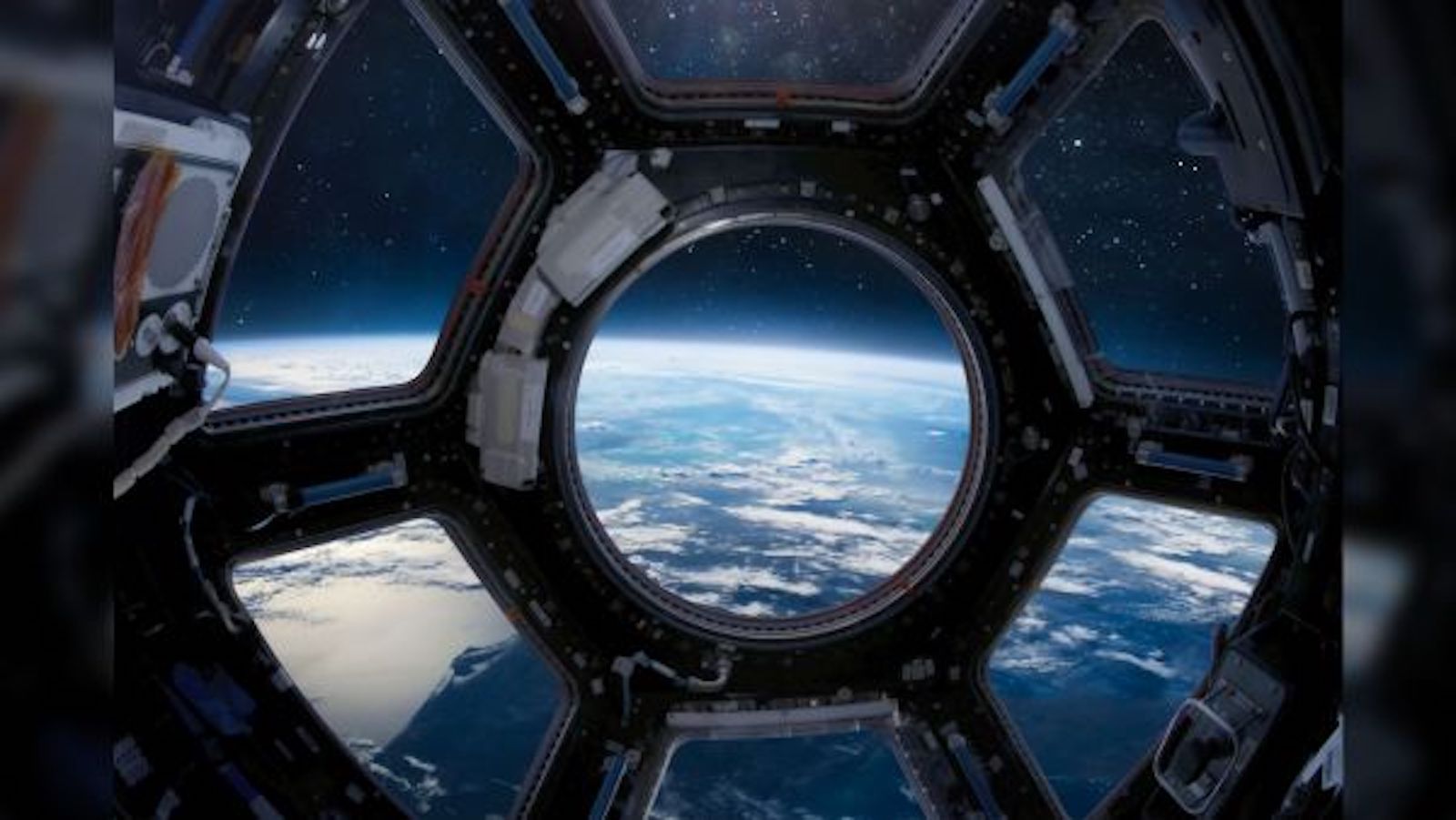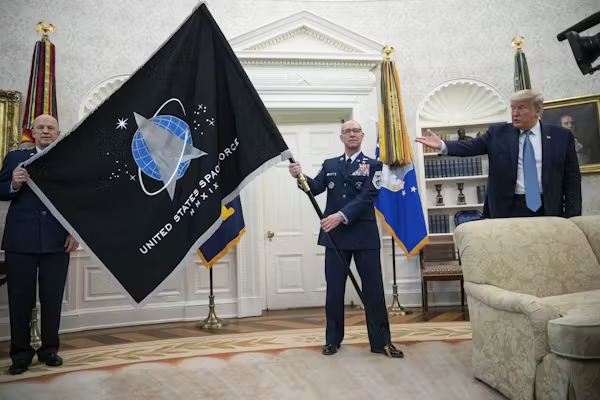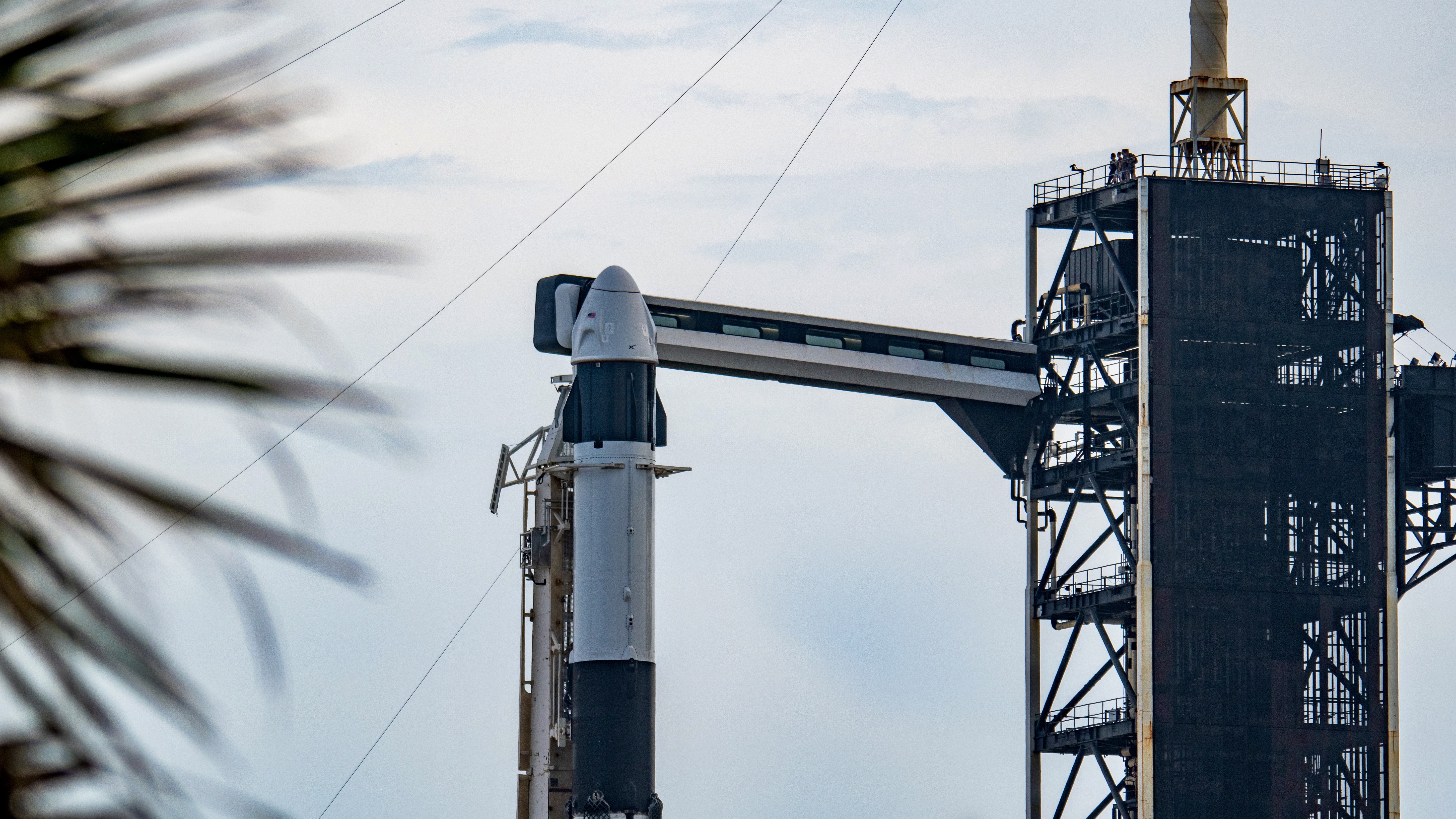
Both Harris and Trump have records on space policy − an international affairs expert examines where they differ when it comes to the final frontier
The next president of the United States could be the first in that office to accept a phone call from the Moon and hear a woman’s voice on the line.

The next president of the United States could be the first in that office to accept a phone call from the moon and hear a woman’s voice on the line. To do so, they’ll first need to make a series of strategic space policy decisions. They’ll also need a little luck.
Enormous government investment supports outer space activities, so the U.S. president has an outsize role in shaping space policy during their time in office.
Past presidents have leveraged this power to accelerate U.S. leadership in space and boost their presidential brand along the way. Presidential advocacy has helped the U.S. land astronauts on the surface of the Moon, establish lasting international partnerships with civil space agencies abroad and led to many other important space milestones.
But most presidential candidates refrain from discussing space policy on the campaign trail in meaningful detail, leaving voters in the dark on their visions for the final frontier.
Related: Artemis Accords: What are they & which countries are involved?
For many candidates, getting into the weeds of their space policy plans may be more trouble than it’s worth. For one, not every president even gets the opportunity for meaningful and memorable space policy decision-making, since space missions can operate on decades-long timelines. And in past elections, those who do show support for space initiatives often face criticism from their opponents for their high price tags.
But the 2024 election is different. Both candidates have executive records in space policy, a rare treat for space enthusiasts casting their votes this November.
Get the Space.com Newsletter
Breaking space news, the latest updates on rocket launches, skywatching events and more!
As a researcher who studies international affairs in outer space, I am interested in how those records interface with the strategic and sustainable use of that domain. A closer look shows that former President Donald Trump and Vice President Kamala Harris have used their positions to consistently prioritize U.S. leadership in space, but they have done so with noticeably different styles and results.
Trump’s space policy record
As president, Trump established a record of meaningful and lasting space policy decisions, but did so while attracting more attention to his administration’s space activities than his predecessors. He regularly took personal credit for ideas and accomplishments that predated his time in office.
The former president oversaw the establishment of the U.S. Space Force and the reestablishment of the U.S. Space Command, as well as the National Space Council. These organizations support the development and operation of military space technologies, defend national security satellites in future conflicts and coordinate between federal agencies working in the space domain.

He also had the most productive record of space policy directives in recent history. These policy directives clarify the U.S. government’s goals in space, including how it should both support and rely on the commercial space sector, track objects in Earth’s orbit and protect satellites from cyber threats.
He has called his advocacy for the creation of the Space Force one of his proudest achievements of his term. However, this advocacy contributed to polarized support for the new branch. This polarization broke the more common pattern of bipartisan public support for space programming.
Like many presidents, not all of Trump’s visions for space were realized. He successfully redirected NASA’s key human spaceflight destination from Mars back to the Moon. But his explicit goal of astronauts reaching the lunar surface by 2024 was not realistic, given his budget proposal for the agency.
Should he be elected again, the former president may wish to accelerate NASA’s Moon plans by furthering investment in the agency’s Artemis program, which houses its lunar initiatives.
He may frame the initiative as a new space race against China.
Harris’ space policy record
The Biden administration has continued to support Trump-era initiatives, resisting the temptation to undo or cancel past proposals. Its legacy in space is noticeably smaller.
As the chair of the National Space Council, Harris has set U.S. space policy priorities and represented the United States on the global stage.
Notably, the Trump administration kept this position that the president can alter at will assigned to the vice president, a precedent the Biden administration upheld.
In this role, Harris led the United States’ commitment to refrain from testing weapons in space that produce dangerous, long-lasting space debris. This decision marks an achievement for the U.S. in keeping space operations sustainable and setting an example for others in the international space community.
Like some Trump administration space policy priorities, not all of Harris’ proposals found footing in Washington.
The council’s plan to establish a framework for comprehensively regulating commercial space activities in the U.S., for example, stalled in Congress.
If enacted, these new regulations would have ensured that future space activities, such as private companies operating on the Moon or transporting tourists to orbit and back, pass critical safety checks.
Should she be elected, Harris may choose to continue her efforts to shape responsible norms of behavior in space and organize oversight over the space industry.
Alternatively, she could cede the portfolio to her own vice president, Minnesota Gov. Tim Walz, who has virtually no track record on space policy issues.
Stability in major space policy decisions
Despite the two candidates’ vastly different platforms, voters can expect stability in U.S. space policy as a result of this year’s election.
Given their past leadership, it is unlikely that either candidate will seek to dramatically alter the long-term missions the largest government space organizations have underway during the upcoming presidential term. And neither is likely to undercut their predecessors’ accomplishments.
Join our Space Forums to keep talking space on the latest missions, night sky and more! And if you have a news tip, correction or comment, let us know at: community@space.com.

At Georgia Tech’s Sam Nunn School of International Affairs, I lead a research portfolio dedicated to issues of international coordination, sustainability, and security in outer space. I develop analytic approaches to recognize and predict satellite behavior in the most congested portions of the near-Earth space environment to better inform the development of international norms of behavior for satellite operations. I also teach classes on topics at the intersection of space technology and policy.
My academic work has been supported by the Harry S. Truman Scholarship Foundation, the National Science Foundation, Schmidt Futures, and Switzerland’s State Secretariat for Education, Research, and Innovation. My professional practice as an advisor for outer space affairs has been recognized with the Massachusetts Institute of Technology’s (MIT) Prize for Open Data, the Geneva Centre for Security Policy’s Prize for Innovation in Global Security, and a placement on Forbes Magazine’s 30 Under 30 in Science list.
Prior to my work at Georgia Tech, I studied astrodynamics and technology policy at MIT and astrophysics and Russian language at Princeton University.
-
COLGeek To prevent inappropriate political commentary and banter, this thread is closed to comments.Reply
